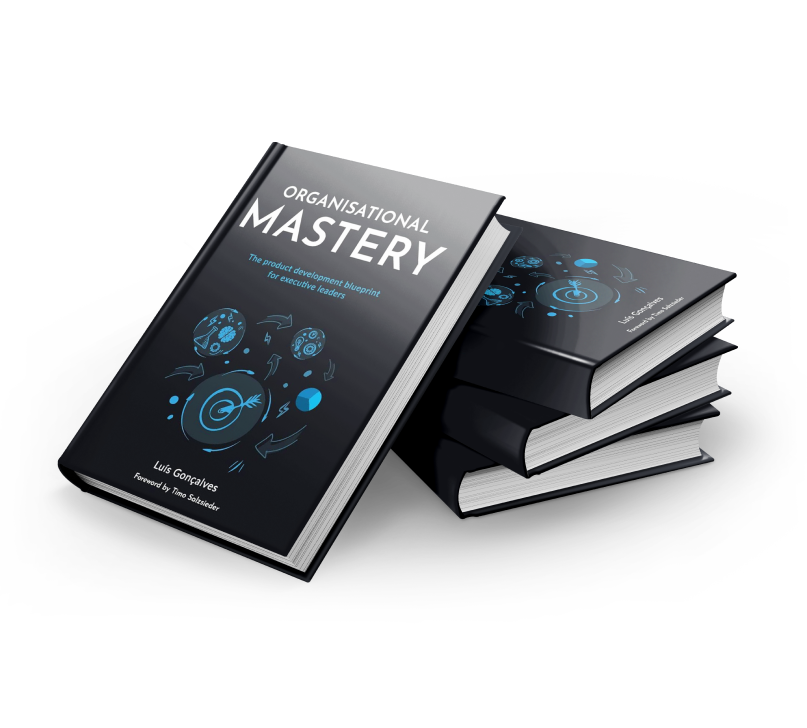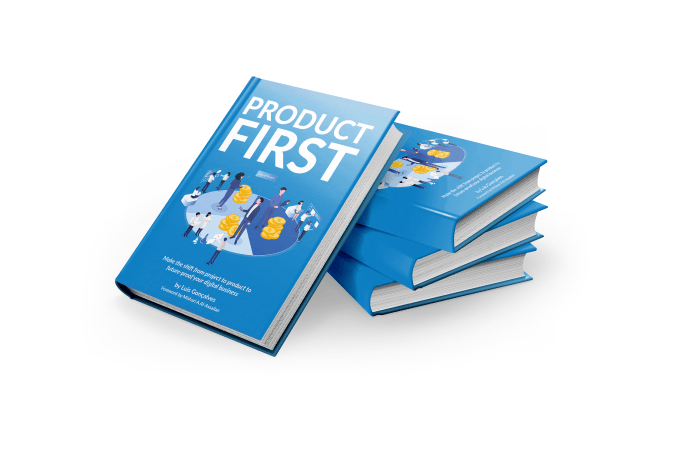Share this
Everything You Need to Know About OKR Basics
by Luis Gonçalves on Jan 13, 2024 6:11:59 AM
One of the most important skills that a modern leader can possess is the ability to align their entire workforce to the big vision of the company, that's why talking about OKR basics is very important!
Remember that aligning your entire organisation is just a small skill set that you must possess in order to ADAPT your company to the digital era! If you are an executive leader looking to ADAPT your company to the digital era, check more about our approach by clicking the link: ADAPT Methodology™.
John Doerr introduced Objectives and Key Results (OKRs) to Google in 1999. This goal-setting methodology has helped Google and other big companies to achieve tremendous growth over the years.
[sc_product_cta product_title="OKR GUIDE FOR DIGITAL PRODUCT DEVELOPMENT" product_description="Do you want to know more about OKRs? We wrote a white paper that summarises everything that you need to know in order to start using OKRs in your company! Do not wait any longer and download your white paper now." product_img="8477" cta_url="https://adaptmethodology.com/okr-guide-en?utm_source=ADAPT_Methodology&utm_medium=CTA_Box&utm_content=Everything You Need to Know About OKR Basics&utm_campaign=OKR_Guide" cta_url_button_text="DOWNLOAD THE OKR GUIDE" /]
If you are inspired by this and you are considering implementing OKRs in your company, you should proceed to read about the OKR basics explained below.
Eliminating Fuzzy Thinking
Doerr defines OKRs as a collaborative goal-setting framework. It can be implemented in your company as a whole, in teams and at the individual level. However, Doerr pointed out that OKRs are not a miraculous fix.
OKRs cannot replace leadership skills, workplace culture and sound judgement in your company, but they can be used to strengthen these fundamentals and guide your company towards success and growth.
OKRs as a Survival Tool
Doerr describes Objectives and Key Results as a survival tool that can help small start-ups by guiding them.
For example, in the tech industry, new companies must be able to move and grow fast before they lose money on capital. Having a structured set of goals will give your company a standard for success.
Medium-sized companies that are experiencing rapid growth can greatly benefit from OKRs too.
The framework will help you answer important questions such as what is needed to be done to get quick results, who will work on “what” and how to keep your employees aligned with your company’s goals.
For large companies, Doerr is of the view that OKRs serve as a neon-lit road sign. The framework helps eliminate barriers and strengthen connections between teams, departments and individual contributors.
OKRs can help even the most successful enterprises to achieve more by encouraging stretch goals.
Quality over Quantity
The principle that quality is more significant than quantity is part of the OKR basics. It means that setting fewer goals in a specific period is much better than setting many goals.
The ideal number of objectives is between 3 and 5. Doerr asserts that having too many objectives can distract people from focusing on the most important things.
Scaling as Fundamentals to OKRs
Writing down your goals, say for a quarter, already increases your chance of attaining them.
By monitoring the progress of your goals and sharing the information with your department heads, you will have more chances of succeeding. This is part of the significance of Objectives and Key Results.
In a study, it was gathered that people who recorded their goals, tracked them on a weekly basis and reported their progress to others were 43% more likely to achieve their objectives than those that didn’t share them.
Abandonment of Hierarchy
Another interesting concept of OKRs is the abandonment of organisational hierarchy.
Most companies abide by the “rule of 7” wherein managers are limited to a maximum of 7 team members. The fewer the ratio of manager and direct reports, the more hierarchical the organisation becomes.
Having more team members allow for a flatter organisational chart, a greater frontline autonomy and a better environment for creative collaboration that will lead to great success.
Setting Ambitious Goals
Larry Page of Google was very ambitious with his goal of achieving growth by tenfold.
But with the implementation of Objectives and Key Results, he and his team were able to set challenging yet attainable objectives plus measurable key results that led to the realisation of their ultimate goal.
The above feat may not sound replicable, but OKRs is designed to keep pushing your teams forward by stretching limitations.
If you liked this article and you are looking for a way to align everyone in your organisation, we offer OKR consulting and OKR training inside of our ADAPT Methodology™ approach, contact us in case you are interested.
[sc_pathway pathway_title="THE ULTIMATE OKR GUIDE" pathway_description="Do you want to know more about OKRs? We wrote a white paper that summarises everything that you need to know in order to start using OKRs in your company! Do not wait any longer and download your white paper now." pathway_button_text="Download The White-Paper" pathway_button_url="https://adaptmethodology.com/okr-guide-en?utm_source=ADAPT_Blog&utm_medium=CTA_Box&utm_content=Bottom_Box&utm_campaign=OKR_Guide" /]
Share this
- Agile Methodologies (18)
- Product Strategy (18)
- OKRs (16)
- Scrum (16)
- Product Mindset (14)
- Project To Product (10)
- Agile Retrospectives (9)
- CoPs (9)
- Knowledge Sharing (9)
- Time To Market (8)
- Product Discovery (7)
- Continuous Improvement (5)
- Strategy (5)
- Scrum Master (4)
- Content Marketing Strategy (3)
- Product Owner (3)
- Technical Excellency (3)
- Digital Transformation (2)
- Innovation (2)
- Scaling (2)
- Team Building (2)
- Business Model (1)
- Cost Of Delay (1)
- Customer Feedback (1)
- Customer Journey (1)
- Customer Personas (1)
- Design Thinking (1)
- Digital Leadership (1)
- Digital Product Tools (1)
- Go To Market Strategy (1)
- Google Design Sprint (1)
- Lean Budgeting (1)
- Lean Change Management (1)
- Market Solution Fit (1)
- Organisational Impediments (1)
- Outsourcing (1)
- Product (1)
- Product Metrics (1)
- Product Roadmaps (1)

Organisational Mastery
Get your free copy

ADAPT
Get your free copy

Product First
Get your free copy
